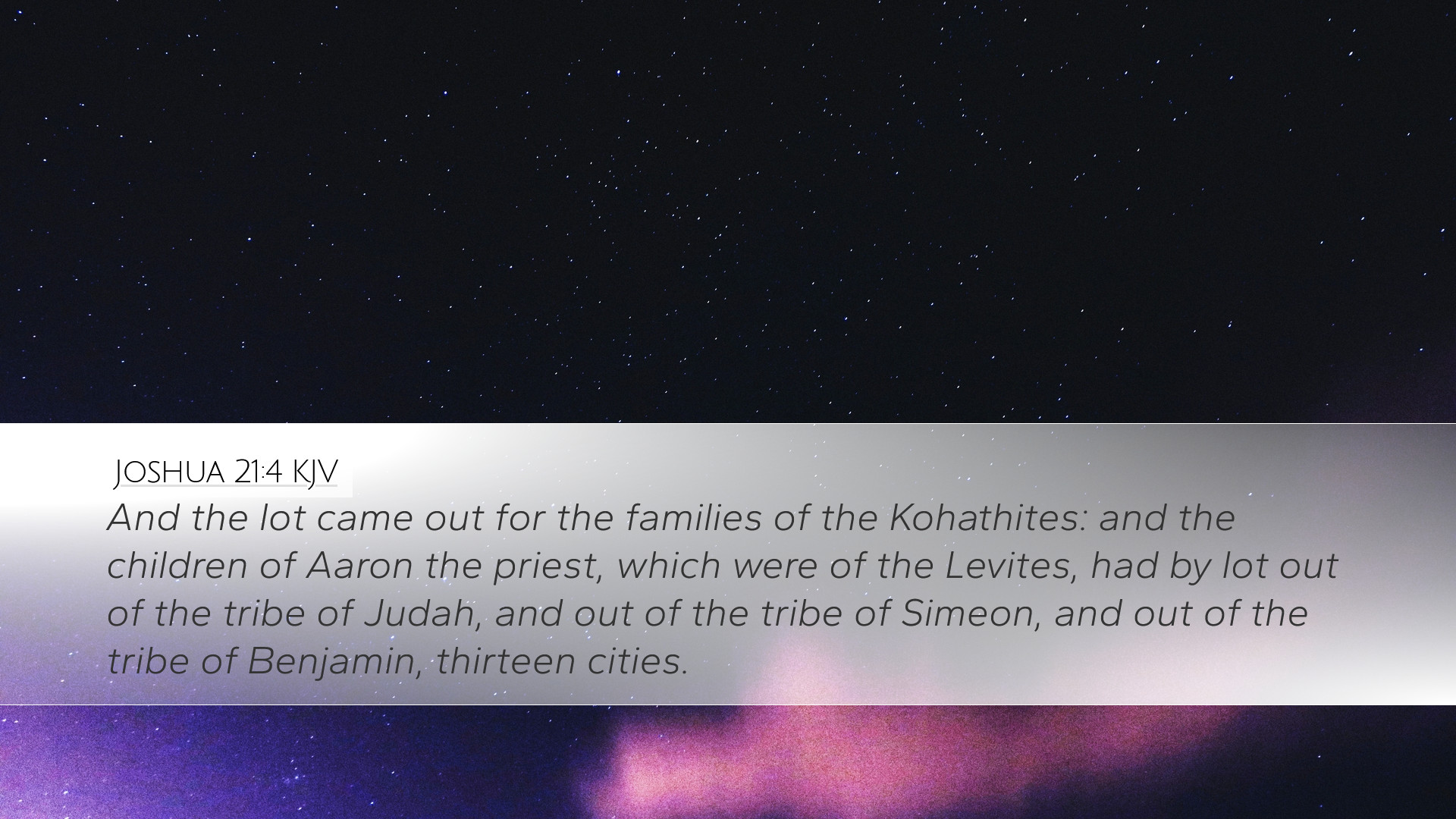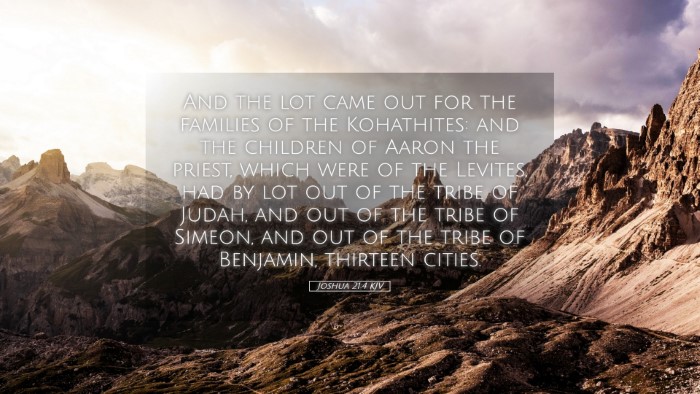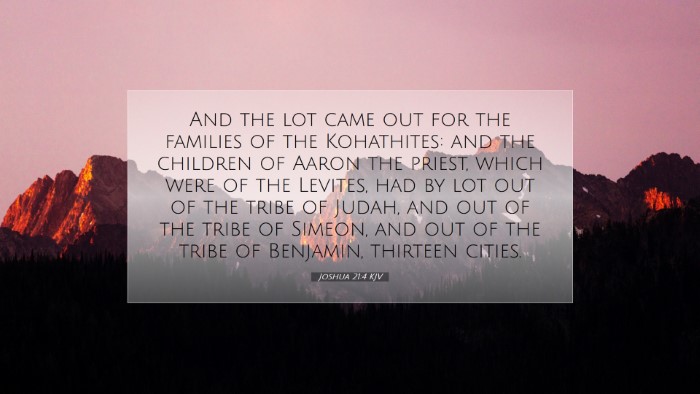Bible Commentary on Joshua 21:4
Verse Text: "And the lot came out for the families of the Kohathites: and the children of Aaron the priest, which were of the Levites, had by lot from the tribes of Judah, and from the tribe of Simeon, and from the tribe of Benjamin, thirteen cities." (Joshua 21:4, KJV)
Introduction
This verse is a significant part of the allocation of cities to the Levites as detailed in the Book of Joshua. The distribution of cities among the Levites holds deep theological and practical implications for understanding God’s provision, the role of the priesthood, and the significance of inheritance in the Old Testament. The following commentary combines insights from renowned public domain scholars including Matthew Henry, Albert Barnes, and Adam Clarke.
Contextual Background
The broader context of Joshua 21 details the distribution of cities among the tribes of Israel, particularly focusing on the Levitical cities. The Levitical priesthood played a unique role in Israelite society and was set apart for God’s service. This context is essential for understanding the significance of the lot and the cities allocated to the Kohathites.
Commentary Insights
1. Divine Sovereignty in Distribution
Matthew Henry emphasizes how the “lot” signifies God’s sovereign choice in the distribution of the cities. This archaeological and theological practice served to remind the Israelites that their inheritance was not merely a matter of chance but deeply rooted in God’s providence. The method of casting lots underscores the belief that God’s will is to be reflected in the daily affairs of their lives.
2. The Kohathites' Special Role
Albert Barnes notes that the Kohathites were entrusted with the most sacred items of the Tabernacle, being responsible for carrying the Ark of the Covenant and other holy vessels. Thus, the cities allotted to them were not merely geographical locations, but they also symbolized their central role in the worship and service of God. This divine arrangement ensured that these priests lived in proximity to the sanctuary, reinforcing their duty and privileges.
3. Significance of the Cities
Adam Clarke discusses the significance of the thirteen cities allocated from the tribes of Judah, Simeon, and Benjamin. He points out that these cities reflect God’s favor and the importance of keeping the lineage and the priesthood. The number thirteen is particularly interesting, as it appears to elevate the position of the Levites within Israel’s social hierarchy, affirming their importance among the tribes.
4. Spiritual Implications
This allocation has spiritual implications as well. The cities served as places of refuge and spiritual guidance. They were centers where God’s law was taught and practiced. Thus, through the physical cities, we see a foreshadowing of spiritual refuge found in Christ, the ultimate High Priest. The Levites’ cities become a typological prefiguration of the New Testament understanding of the Church as the Body of Christ, a place of safety and instruction.
5. The Role of Aaron's Line
It is significant that the cities allocated to the children of Aaron, the priestly line, highlight the distinction within the Levites. As Barnes notes, their elevated status reflects their direct connection to the sacrificial system and temple worship. This underscores the New Testament theme of Christ being our High Priest, mediating between God and man, embodying the ultimate fulfillment of the priestly role.
Theological Reflections
This passage invites reflection on several theological areas:
- God’s Governance: The method by which God governs and provides for His people reminds us of His sovereignty in our lives today.
- Service and Holiness: The assignment of cities to the Kohathites serves as a model of how God desires us to live out our callings in holiness and service.
- Community of Faith: It also highlights the importance of community among believers, each playing vital roles in the functioning of the Body of Christ.
- Future Inheritance: Lastly, it points toward the future inheritance promised to all believers, reinforcing that we, too, are given places in God’s kingdom.
Conclusion
Joshua 21:4 serves not only as a historical record of the Levitical inheritance but as a pivotal point for understanding the nature of divine provision, the importance of spiritual leadership, and the overarching narrative of God's redemptive plan through the ages. The insights gained from Matthew Henry, Albert Barnes, and Adam Clarke provide depth for pastors, students, and scholars, inviting them to explore the rich layers of meaning found in this verse and its connection to the broader biblical narrative.


